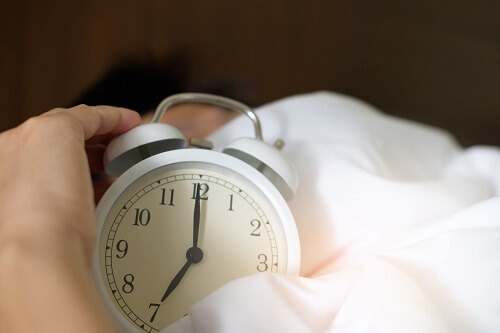Sleeping patterns play a major role in how we feel each day, but to what extent do they affect performance?
Partial Sleep Deprivation
The evidence indicates anaerobic performance in a 30 second Wingate maximal cycling test is uninhibited following partial sleep deprivation at the beginning of the night (delaying bed time), while performance decreased following deprivation at the end of the night (waking earlier). Reduced circadian rhythms combined with the increased fatigue of staying awake over a longer period of time are potential mechanisms responsible for this occurrence.
When it comes to aerobic endurance, some evidence exists, indicating partial sleep deprivation reducing total distance covered over 15 minutes of ergometer cycling. An accumulation of sleep debt over several days results in an elevated rating of perceived exertion and fatigue, ultimately decreasing performance.
Limiting sleep to 2.5-3hrs per night for 3 days is shown to have no impact on a 1RM bicep curl. The evidence did however identify a decrease in 1RM bench press, leg press and dead lift; suggesting partial sleep deprivation has a greater effect on larger muscle group recruitment.
Total sleep deprivation
Anaerobic performance in 30 and 60 second Wingate tests and 40m sprint was unaffected following 24, 48 and even 60 hours of total sleep deprivation in the literature. Likewise, the evidence found no detrimental effect on snatch, clean and jerk performance following 24-hour sleep deprivation and maximal bicep and triceps strength following 36 hours of sleep deprivation.
Reduced motivation is a key mechanism by which sleep deprivation affects performance. Therefore, the literature attributes an absence of performance decrease to the short time frame that motivation must be maintained during performance of these activities, even when a sleep debt is present.
In contrast, evidence reveals a detrimental effect for total sleep deprivation on aerobic and endurance performance. 24-hour sleep deprivation led to a reduction in total distance covered during a 30 min treadmill walking protocol; while 36, 42 and 50 hours of sleep deprivation reduced time to exhaustion in both ergometer cycling and treadmill walking. Repeated sprint and deep squat performance following 30 hours of sleep deprivation was also reduced over a 50 min protocol.
The literature hypothesizes a lack of motivation to endure the discomfort of activities of an extended duration following sleep deprivation, combined with an increased rating of perceived exertion due to fatigue as the mechanism driving this reduction in performance.
Extended Sleep Duration
Increasing habitual sleeping hours over the span of 5-7 weeks can lead to improved 85m sprinting performance along with improved basketball free throw and 3 point shooting accuracy. This evidence supports the idea of sleep duration being an important component of performance preparation.
Napping is most advantageous when a sleep debt is present, with the literature relating improvements in both aerobic and anaerobic performance. Findings suggest the duration of the nap and incidence of deep sleep is largely irrelevant provided there is time to sufficiently overcome sleep inertia prior to performance. Following a night of partial sleep deprivation, a 30-minute afternoon nap has been shown to improve 20m sprint performance by reducing fatigue and enhancing motivation.
Interestingly, the literature discovered that while back and lower limb strength was not reduced following 24-hour sleep deprivation, a reduction was noticed following a night of recovery sleep. This evidence provides validity to the theory of performance impairment resulting from insufficient time to overcome sleep inertia, particularly when a sleep debt is present.
by Chris Hughes
Reference:
Thun, E., Bjorvatn, B., Flo, E., Harris, A. & Pallesen, S. (2015). Sleep, circadian rhythms, and athletic performance. Sleep Medicine Reviews, 23: 1 – 9.


